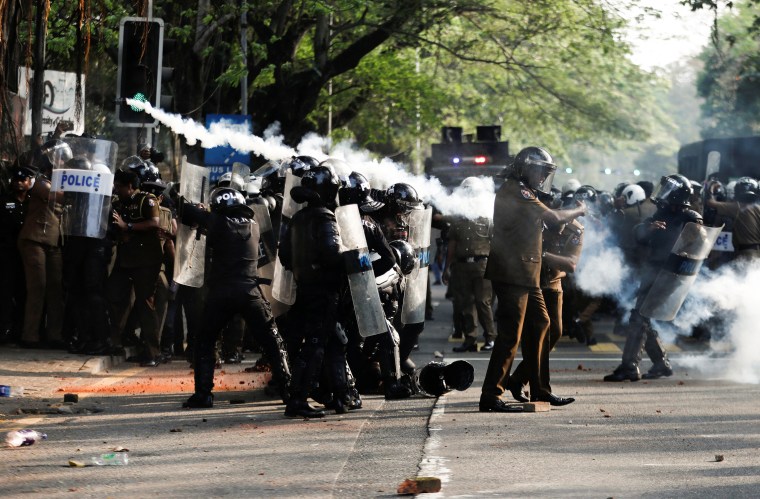New York, October 18, 2023—Sri Lankan authorities should withdraw the proposed Online Safety Bill and Anti-Terrorism Bill or significantly amend them in line with international human rights standards, the Committee to Protect Journalists said Wednesday.
In parliament on October 3, Public Security Minister Tiran Alles tabled the Online Safety Bill, which would empower a five-member commission appointed by the president to direct internet service providers or social media platforms to block access to “an online location which contains a prohibited statement,” which could include news websites or accounts of journalists and media outlets.
The bill would also allow the proposed commission to investigate alleged violators for publishing such content, with journalists potentially facing a prison term of up to five years and an unspecified fine.
Sri Lankan human rights lawyer Ambika Satkunanathan told CPJ that the term “prohibited statement” lacks a clear definition in the bill, and would be contingent on subjective interpretation, opening the door for state actors to suppress dissent.
Separately, on September 15, the Sri Lankan Ministry of Justice published a revised version of the Anti-Terrorism Bill after public and diplomatic pressure following the first draft in March. The bill would replace and repeal the Prevention of Terrorism Act, which has been repeatedly used to jail and harass journalists for their work.
While the revised bill includes some welcome amendments, including removing the death penalty as punishment, it retains a vague and overbroad definition of terrorism, according to a statement by a spokesperson for the United Nations High Commissioner for Human Rights.
“Sri Lanka’s proposed Online Safety Bill and Anti-Terrorism Bill are ripe for abuse against the media and would allow authorities to continue cracking down on press freedom and freedom of expression,” said CPJ Program Director Carlos Martinez de la Serna. “We urge the government to reconsider the bills in their entirety or engage in a thorough consultation process with journalists and civil society to ensure the provisions adhere to international human rights law.”
Satkunanathan, who filed petitions challenging the constitutionality of both bills in the Supreme Court, said that she believes the government should withdraw the legislation and address the relevant offenses within the country’s existent criminal laws.
On Wednesday, October 18, the Attorney General told the Supreme Court that the government would make unspecified amendments to the Online Safety Bill.
The U.N. statement also expressed concern that the Anti-Terrorism Bill grants wide powers to the police and military to question, search, and arrest people without adequate judicial oversight.
Clause 9 of the Anti-Terrorism Bill prohibits supplying “confidential information,” defined as that which is “likely to have an adverse effect on national or public security,” to another person while “knowing or having reasonable grounds to believe” that it will be used to commit an offense under the law.
“Journalists gathering information on activities the government does not wish to be publicized are vulnerable to being targeted through this provision,” Satkunanathan said.
CPJ’s calls and messages to Alles did not receive any replies. When reached by phone, Sri Lankan Justice Minister Wijeyadasa Rajapakshe told CPJ he was unable to comment immediately. Rajapakshe did not respond to CPJ’s follow-up messages.
(Editor’s note: This report was updated in the third paragraph to correct the characterization of the Online Safety Bill and the sixth paragraph to accurately reflect the U.N. statement.)
